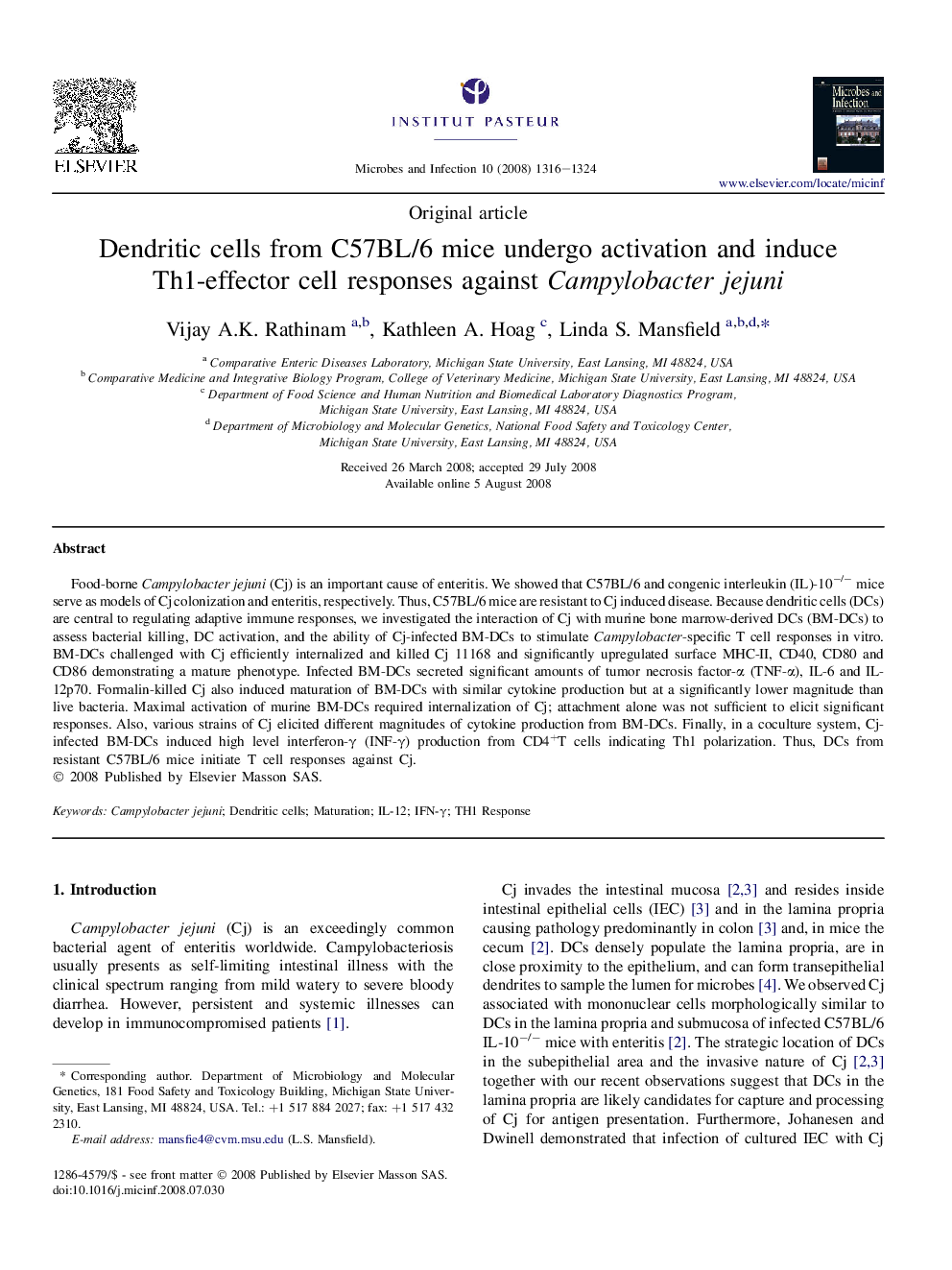| Article ID | Journal | Published Year | Pages | File Type |
|---|---|---|---|---|
| 3415569 | Microbes and Infection | 2008 | 9 Pages |
Food-borne Campylobacter jejuni (Cj) is an important cause of enteritis. We showed that C57BL/6 and congenic interleukin (IL)-10−/− mice serve as models of Cj colonization and enteritis, respectively. Thus, C57BL/6 mice are resistant to Cj induced disease. Because dendritic cells (DCs) are central to regulating adaptive immune responses, we investigated the interaction of Cj with murine bone marrow-derived DCs (BM-DCs) to assess bacterial killing, DC activation, and the ability of Cj-infected BM-DCs to stimulate Campylobacter-specific T cell responses in vitro. BM-DCs challenged with Cj efficiently internalized and killed Cj 11168 and significantly upregulated surface MHC-II, CD40, CD80 and CD86 demonstrating a mature phenotype. Infected BM-DCs secreted significant amounts of tumor necrosis factor-α (TNF-α), IL-6 and IL-12p70. Formalin-killed Cj also induced maturation of BM-DCs with similar cytokine production but at a significantly lower magnitude than live bacteria. Maximal activation of murine BM-DCs required internalization of Cj; attachment alone was not sufficient to elicit significant responses. Also, various strains of Cj elicited different magnitudes of cytokine production from BM-DCs. Finally, in a coculture system, Cj-infected BM-DCs induced high level interferon-γ (INF-γ) production from CD4+T cells indicating Th1 polarization. Thus, DCs from resistant C57BL/6 mice initiate T cell responses against Cj.
